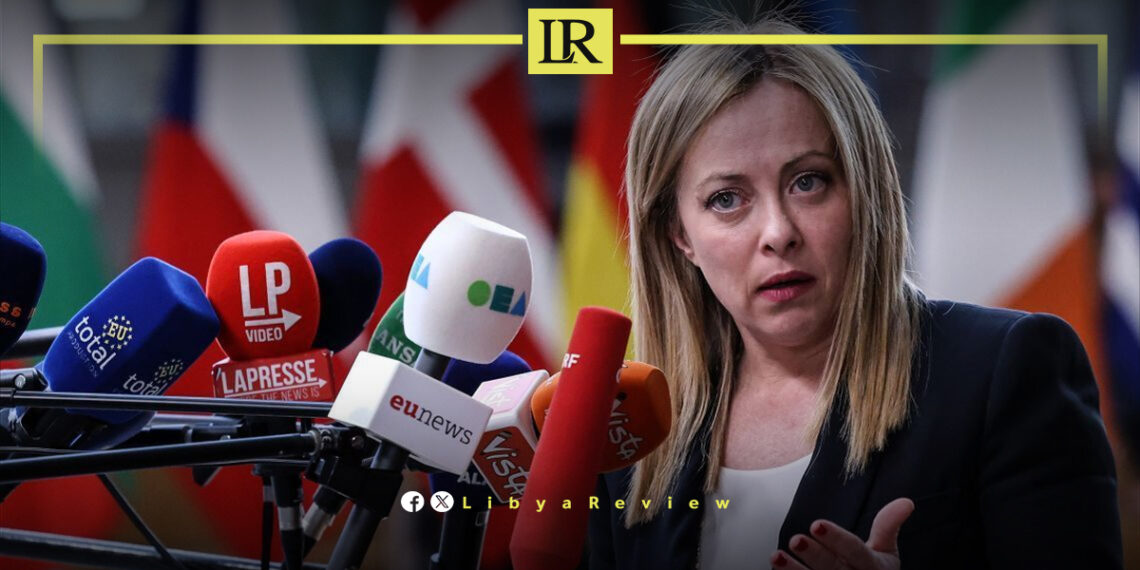Italian Prime Minister Giorgia Meloni has called for close monitoring of Russia’s activities in Libya, warning that Moscow could be seeking a new foothold in the region following its setbacks in Syria.
Speaking during a press conference at the Chamber of Deputies on Thursday, Meloni highlighted Libya’s strategic importance and the potential risks posed by increased Russian influence in North Africa.
Meloni pointed to Russia’s significant military presence in Syria, where it maintained a strong foothold with a fleet in the Mediterranean. She suggested that after the collapse of the Assad regime, Moscow may be looking to establish alternative points of influence in the region. “It’s reasonable to think that Russia is searching for other entry points, and one of these could be Cyrenaica,” she said, referring to eastern Libya.
The Italian prime minister emphasized that this situation warrants close attention. “This scenario certainly requires monitoring, and we are doing so at all levels,” she stated, underscoring Italy’s focus on safeguarding Mediterranean stability and security.
Libya’s location along the Mediterranean and its vast energy resources make it a key focus for global powers. Russia has reportedly sought to deepen its presence in the country, particularly in Cyrenaicaز
The deployment of the Wagner Group, a Russian paramilitary organization, in Libya has further solidified Moscow’s influence in the region.
This growing presence aligns with Russia’s broader strategy to maintain a foothold in the Mediterranean, even as its influence in the Middle East has faced challenges. Meloni’s concerns reflect European apprehensions that Russia’s activities in Libya could disrupt regional stability and impact Europe’s energy security and migration management efforts.
Italy has a vested interest in Libya’s stability due to its proximity and longstanding economic and security ties with the country. As one of the most prominent European nations engaged in Libyan affairs, Italy relies on Libya for managing migration routes and ensuring energy imports. An increase in Russian influence could complicate Italy’s efforts to stabilize the region and weaken Europe’s position in the Mediterranean.


